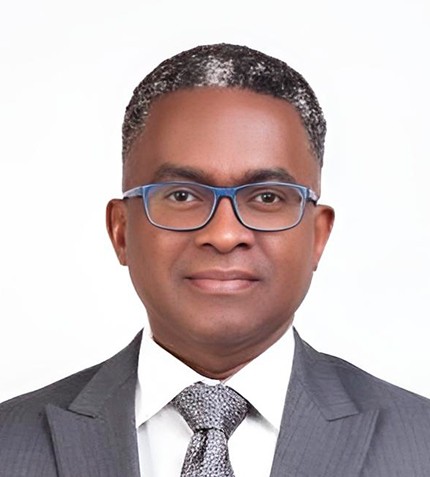
"Modular approaches to gas monetization are becoming more prevalent due to the inefficiency of large-scale projects in regions with limited industrial infrastructure."
Share
Can you introduce the Oida Group and outline your operations in Nigeria?
Previously known as Oildata Wireline Services, Oida Energy pioneered Oil and Gas well-intervention in the upstream service sector in Nigeria. Over the years, we diversified into natural gas processing with our subsidiary Xenergi, focusing on modular energy solutions to efficiently flare out and monetize gas flares. We successfully flared-out gas, produced marginal fields and implemented remote well intervention projects in various locations both in Nigeria and in places like offshore Ghana and the Mumbai High offshore basin in India. We have supported marginal fields, providing technical services and solutions to bring these fields to production, particularly by introducing modular Early Production Facilities.
Additionally, we have contributed to infrastructure development in special economic zones, which is crucial in Africa where infrastructure deficits limit trade.
Can you elaborate on the Kwale Gas Gathering (KGG) facility and its significance?
The KGG project, led by Nedogas (a subsidiary of Oida), is a unique partnership with the Nigerian Content Development and Monitoring Board (NCDMB). This project helps monetize stranded gas resources by creating an open-access hub, allowing operators to avoid replicating infrastructure. This approach significantly reduces the time to market.
Modular approaches to gas monetization are becoming more prevalent due to the inefficiency of large-scale projects in regions with limited industrial infrastructure. For example, there are about 140 flare sites in the Niger Delta alone, and modular systems like the KGG help gather gas efficiently.
How do you assess Nigeria’s progress in exploiting and monetizing its gas resources?
I think there are many positive developments. There is a stronger will from the government and operators, including the NNPC, to pursue and unlock gas resources. Gas is seen as the energy of the future. While oil will still be present, gas is cleaner and has a more diverse economic impact, affecting sectors like petrochemicals, power, manufacturing, and agriculture.
The PIA was introduced to create separate fiscal regimes for gas, encouraging investment. The PIA is still being understood in terms of its practical application. However, the NNPC has been proactive in unlocking gas resources, as evidenced by the proposed FLNG projects.
To make further progress, it is essential to agree on standards and address bottlenecks in accessing major infrastructure, such as trunk lines. There is a tendency to duplicate infrastructure like pipelines unnecessarily instead of tieing into existing infrastructure. This approach is inefficient both from an engineering and economic perspective because we are dealing with one market, one country, one industry, and one industrial sector that should be coordinated.
What is Oida’s vision?
Collaborating across borders is central to our strategy, and we will continue to engage with key players in frontier African markets. Partnerships with entities like the NCDMB and private investment banks have bolstered our credibility. Looking ahead, we aim to expand such partnerships and explore innovative financing models to support future projects.
Can you introduce the Oida Group and outline your operations in Nigeria?
Previously known as Oildata Wireline Services, Oida Energy pioneered Oil and Gas well-intervention in the upstream service sector in Nigeria. Over the years, we diversified into natural gas processing with our subsidiary Xenergi, focusing on modular energy solutions to efficiently flare out and monetize gas flares. We successfully flared-out gas, produced marginal fields and implemented remote well intervention projects in various locations both in Nigeria and in places like offshore Ghana and the Mumbai High offshore basin in India. We have supported marginal fields, providing technical services and solutions to bring these fields to production, particularly by introducing modular Early Production Facilities.
Additionally, we have contributed to infrastructure development in special economic zones, which is crucial in Africa where infrastructure deficits limit trade.
Can you elaborate on the Kwale Gas Gathering (KGG) facility and its significance?
The KGG project, led by Nedogas (a subsidiary of Oida), is a unique partnership with the Nigerian Content Development and Monitoring Board (NCDMB). This project helps monetize stranded gas resources by creating an open-access hub, allowing operators to avoid replicating infrastructure. This approach significantly reduces the time to market.
Modular approaches to gas monetization are becoming more prevalent due to the inefficiency of large-scale projects in regions with limited industrial infrastructure. For example, there are about 140 flare sites in the Niger Delta alone, and modular systems like the KGG help gather gas efficiently.
How do you assess Nigeria’s progress in exploiting and monetizing its gas resources?
I think there are many positive developments. There is a stronger will from the government and operators, including the NNPC, to pursue and unlock gas resources. Gas is seen as the energy of the future. While oil will still be present, gas is cleaner and has a more diverse economic impact, affecting sectors like petrochemicals, power, manufacturing, and agriculture.
The PIA was introduced to create separate fiscal regimes for gas, encouraging investment. The PIA is still being understood in terms of its practical application. However, the NNPC has been proactive in unlocking gas resources, as evidenced by the proposed FLNG projects.
To make further progress, it is essential to agree on standards and address bottlenecks in accessing major infrastructure, such as trunk lines. There is a tendency to duplicate infrastructure like pipelines unnecessarily instead of tieing into existing infrastructure. This approach is inefficient both from an engineering and economic perspective because we are dealing with one market, one country, one industry, and one industrial sector that should be coordinated.
What is Oida’s vision?
Collaborating across borders is central to our strategy, and we will continue to engage with key players in frontier African markets. Partnerships with entities like the NCDMB and private investment banks have bolstered our credibility. Looking ahead, we aim to expand such partnerships and explore innovative financing models to support future projects.